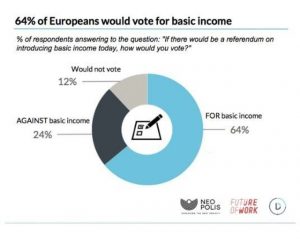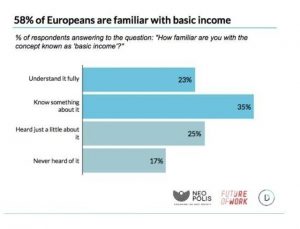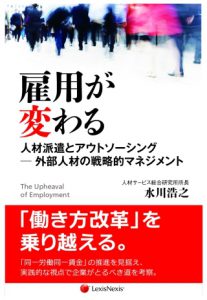こんにちは。人材サービス総合研究所の水川浩之です。
 少し前になりますが、今年2017年1月12日の「World Economic Forum」の記事で、フィンランドでベーシックインカムのトライアルをしているというものをみつけました。
少し前になりますが、今年2017年1月12日の「World Economic Forum」の記事で、フィンランドでベーシックインカムのトライアルをしているというものをみつけました。
最近、ちらちらとベーシックインカムという言葉をみかけるようになりましたが、それでもまだ人事や人材サービスに携わっているごく一部の人の中でようやく少し認識されるようになった程度でしょうか。
学識者の方にはそれなりには浸透しているようですが、とても一般的になっているとは思えません。
簡単に検索した程度では、ベーシックインカムについての認知度調査のようなものもないようです。
少なくとも我が国の中では、その存在すら認知されていないように思います。
■まだまだマイナーな「ベーシックインカム」
一つのバロメーターとして「ベーシックインカム」という言葉がどの程度使われているか、厚生労働省と労働政策研究研修機構(JILPT)のそれぞれのサイトでサイト内検索をしてみました。
内容を問わず、単純に検索結果の件数だけをみると、厚生労働省では21件、JILPTで38件とごくわずかです。
ちなみに、「労働者派遣」という言葉でサイト内検索をすると、厚生労働省で3,670件、JILPTで22,300件です。
いかに「ベーシックインカム」という言葉がマイナーかわかりますね。
■ そもそも「ベーシックインカム」ってなに?
というわけで、「ベーシックインカム」という言葉を誰もが知っている言葉として話を進めてしまうのは問題だと思うので、簡単に調べてみました。
Wikiによれば「最低限所得保障の一種で、政府がすべての国民に対して最低限の生活を送るのに必要とされている額の現金を無条件で定期的に支給するという構想。基礎所得保障、基本所得保障、最低生活保障、国民配当とも、また頭文字をとってBIともいう。」とのことです。
誰もが一律の現金を、無条件で得られるというシステムのことですが、お金をもらえること自体はうれしいことかもしれませんが、果たしてこの制度はよいものなのでしょうか。
■ 認知度の低い「ベーシックインカム」
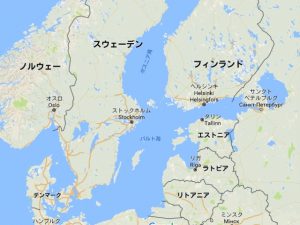 ここまで書いておいて言うのもナンですが、私自身「ベーシックインカム」という制度がよいものかどうか、そのメリット・デメリットも正確に理解しておらず、もちろん賛成か反対かの判断も付きません。
ここまで書いておいて言うのもナンですが、私自身「ベーシックインカム」という制度がよいものかどうか、そのメリット・デメリットも正確に理解しておらず、もちろん賛成か反対かの判断も付きません。
要するに情報が少なすぎるのです。
海外では、すでにオランダの一部、ユトレヒトでは昨年からテストをしているという話を聞いたことがあります。
ユトレヒトには何度か行ったことがありますが、それほど大きな町ではありません。
また、ここで採り上げられているフィンランドはもう少し規模が大きいもののようです。2,000人に560ユーロ(68,000円ぐらい?)を支給しているというものです。
インドやアフリカの一部でもすでにテストの成果が現れているそうです。カナダやスコットランドでもこれからテストが始まるようです。
唯一、ネガティブに捉えられたのはスイスで、昨年、導入の住民投票で否決されたということも報じられました。
ただ、賛否を問うからには、その内容について国民から認識がされていて当然です。テスト導入している国はそれ以上に認知されているはずです。
それに比べ、我が国ではあまりにも認知度が低すぎるのではないでしょうか。
■ 働かざるもの食うべからず
「働かざるもの食うべからず」…そもそもこの言葉自体に賛否はあるようです。
語源としては「働こうとしない者は、食べることもしてはならない」、つまり怠け者は食べるなということですね。
働きたくても働けない人などは別として、労働の対価として収入を得、その収入で生計を立てるということならば、的外れな言葉ではないように思います。
頑張って働いて収入を得るということ自体は、従来の資本主義国に育った我々にとっては恐らく一般的な感覚ではないでしょうか。
もちろん、いろいろな価値観があるので必ずしもそうとは言い切れないのかもしれませんが、働かずにラクしてお金をもらう、と聞くとなんとなくムッとしませんか?(笑)
それにもかかわらず、「ベーシックインカム」という言葉に関心がわいてきます。
■ 第4次産業革命に向けての「ベーシックインカム」
 フィンランドの例をみると「ベーシックインカム」は、以下のようなことが効果として挙げられています。まじめに記事を訳したわけではありませんが、ザックリこんなことが書かれているようです。
フィンランドの例をみると「ベーシックインカム」は、以下のようなことが効果として挙げられています。まじめに記事を訳したわけではありませんが、ザックリこんなことが書かれているようです。
- シンプルな制度で行政コストを抑えられる
- 貧困対策として公平である
- 家族による介護者に報いることができる
- セーフティネットを強化できる
- 人生の変化を安全なものに感じさせる
- 不正受給をなくせる
もともと、「ベーシックインカム」は、貧困対策や社会福祉といった観点で語られてきたのです。
私も、福祉国家ではない日本には関係ないものと思っていました。
雇用保険や生活保護といった現行制度に何の疑問ももっていなかったのですが、ここにきてにわかに「ベーシックインカム」という言葉が自分の中で急浮上してきたのはなぜでしょう。
その原因は、AIやロボット、自動運転やIoTといった第4次産業革命です。最近、幼稚園ぐらいのときに見た手塚治虫の世界がかなり現実化してきていることをひしひしと感じます。
鉄腕アトムをテレビアニメで見た第一世代だからでしょうか。むしろ、当時との変化の差をはっきりと感じるのです。
■ 人として大切なことをするために
第4次産業革命が伸展すると、人は働きたくても働く機会を失う、いや、もっとポジティブに考えると、人がやらなくてもよい仕事は機械に任せ、人だからこそできること、本来人がやるべきことに時間を割いて生きていくことができるようになるはずです。
家族との団らんであったり、大切な人と過ごす時間、子どもとのふれあい、親の介護、地域への貢献、何らかのコミュニティへの参加、学ぶ時間であったり、趣味であったり…これらは仕事とは言わないのかもしれません。
しかし、人として考えた場合、これらのことは恐らく仕事より大切なことで、従来の「滅私奉公」とは正反対のパラダイムシフトが起こるのではないでしょうか。
要するに、人の営みとして最も原始的なことに価値を感じられるようになるのではないかと思うのです。
■ 早めに「ベーシックインカム」の議論を
AIやロボットが稼いでくれたものから最低限の収入を分配してもらい、プラスアルファは個人の意思や都合によって働く世の中。
最低限生きていくことは保障されながら、それ以上のことは本当の意味での個人の自由ということになります。
これは明らかに社会主義とは異なります。
そんなことをつらつらと考えていると、あながち「ベーシックインカム」は悪いものではないのかなとも思えてきます。
仮に「ベーシックインカム」を採り入れるにしても、これが必要になるのは第4次産業革命が伸展してからの話だろうとは思いますが、国の社会保障のしくみを根本からくつがえす変革です。
実際に採り入れるとなると、途方もない時間がかかるはずです。採り入れるか入れないか以前の問題として、今から国民レベルの検討をしておくことは必要ではないでしょうか。
少なくとも住民投票をしている国やテスト導入をしている国と比較すると明らかに日本は遅れているのですから…。
| Finland is trialling basic income. Here’s how it will work
World Economic Forum Thursday 12 January 2017 One of the greatest political challenges in the 21st century is coming up with a welfare system which is both effective and fair. Recipients and non-recipients of benefits payments are both quick to point out apparent deficiencies in the status quo – as well as problems with any potential alternatives. But some countries are clearly ready for change. As of January 1 2017, Finland became the first European country to implement a plan whereby unemployed citizens receive a basic monthly income. Created by the government agency responsible for Finnish social security benefits (KELA), it will be run as a pilot scheme in which 2,000 randomly selected unemployed people receive €560 every month in place of their existing social security payments. Recipients will continue to be paid even if they find work or, more significantly for some, even if they choose not to look for work. The trial will last for two years and is intended to reduce high levels of unemployment.
This kind of situation is replicated in much of continental Europe and it’s certainly a bold move for the Finnish government to look at the possibility of such wide scale change. Perhaps they are encouraged by the success of similar schemes in parts of Africa and India, which were designed to reduce poverty. In the UK, Scotland considered scrapping the current welfare system and replacing it with a non-means tested guaranteed income for all citizens in the hope of tackling the growing problem of mass unemployment.
First, basic income will make the social security system much simpler by reducing bureaucracy, resulting in a fairer and more cost effective system that should end extreme poverty. The scheme will reward unpaid contributions to society, such as close family carers. And it could make people feel more secure in making changes to their lives – a safety net which might strengthen the nation’s sense of endeavour and enterprise. Another important advantage is that a basic income scheme should almost completely eradicate the plague of benefit fraud, which costs the UK billions of pounds every year. Race to the Finnish Critics of the scheme feel it will reward and encourage laziness. Harsher sceptics have even likened the concept to reverting back to negative stereotypes of communist societies. But beyond fears of what might happen if a population is given “free money’”, perhaps the biggest concerns currently being voiced tie into immigration. Would a scheme like this give a country an unwanted “pull factor”? It’s no secret that Europe is currently undergoing the worst migrant crisis since the World War II. Having a basic income scheme in Europe could make the continent an even more attractive place to live. Last year, the UK saw its highest level of net migration ever, with figures for the year ending June 2016 standing at 335,000. It has been suggested that Finland could see migrants turning away from the UK as they are pulled towards the country and the promise of an “easier” life because it offered a basic income. This argument was a dominant part of the Swiss debate. Critics of the scheme also point to the issue of benefit tourism among European citizens who move from low GDP countries to higher GDP countries with absolutely no intention of finding work. You can see why there are more than a handful of doubters. Yet among all the discussion, one key point seems to have escaped many people’s attention. The average private sector income in Finland is around €3,500 a month, making the basic income for unemployed just 16% of the average salary. Perhaps the question people should be asking is whether this is enough to pay for day-to-day living expenses in Finland, let alone be a pull factor towards the country? |
お陰さまで好評発売中です!ご注文は、Amazon からお願いします。
全国の紀伊國屋書店、丸善ジュンク堂、ブックファースト、有隣堂、三省堂書店などでもご購入いただけます。
関連記事:
- 著書「雇用が変わる」を上梓しました!(2016年9月30日)
- 拙著「雇用が変わる」の特長と目次(2016年10月2日)
- 拙著「雇用が変わる」、いよいよ明日発売!(2016年10月14日)
- 「『雇用が変わる』出版記念パーティ」のご案内(2016年11月1日)
- 感謝感激!涙の出版記念パーティ (2016年11月8日)
投稿者プロフィール

最新の投稿
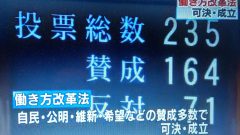 経営戦略2018.06.29あほらしい…働き方改革国会
経営戦略2018.06.29あほらしい…働き方改革国会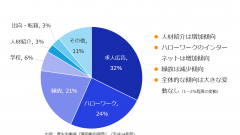 経営戦略2018.01.10方法論ではない「人材採用」
経営戦略2018.01.10方法論ではない「人材採用」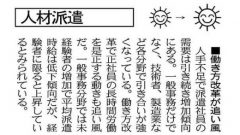 経営戦略2018.01.09人材サービス業界、2018年はこんな年
経営戦略2018.01.09人材サービス業界、2018年はこんな年 経営戦略2017.12.07先が思いやられる、この国の労働政策
経営戦略2017.12.07先が思いやられる、この国の労働政策

